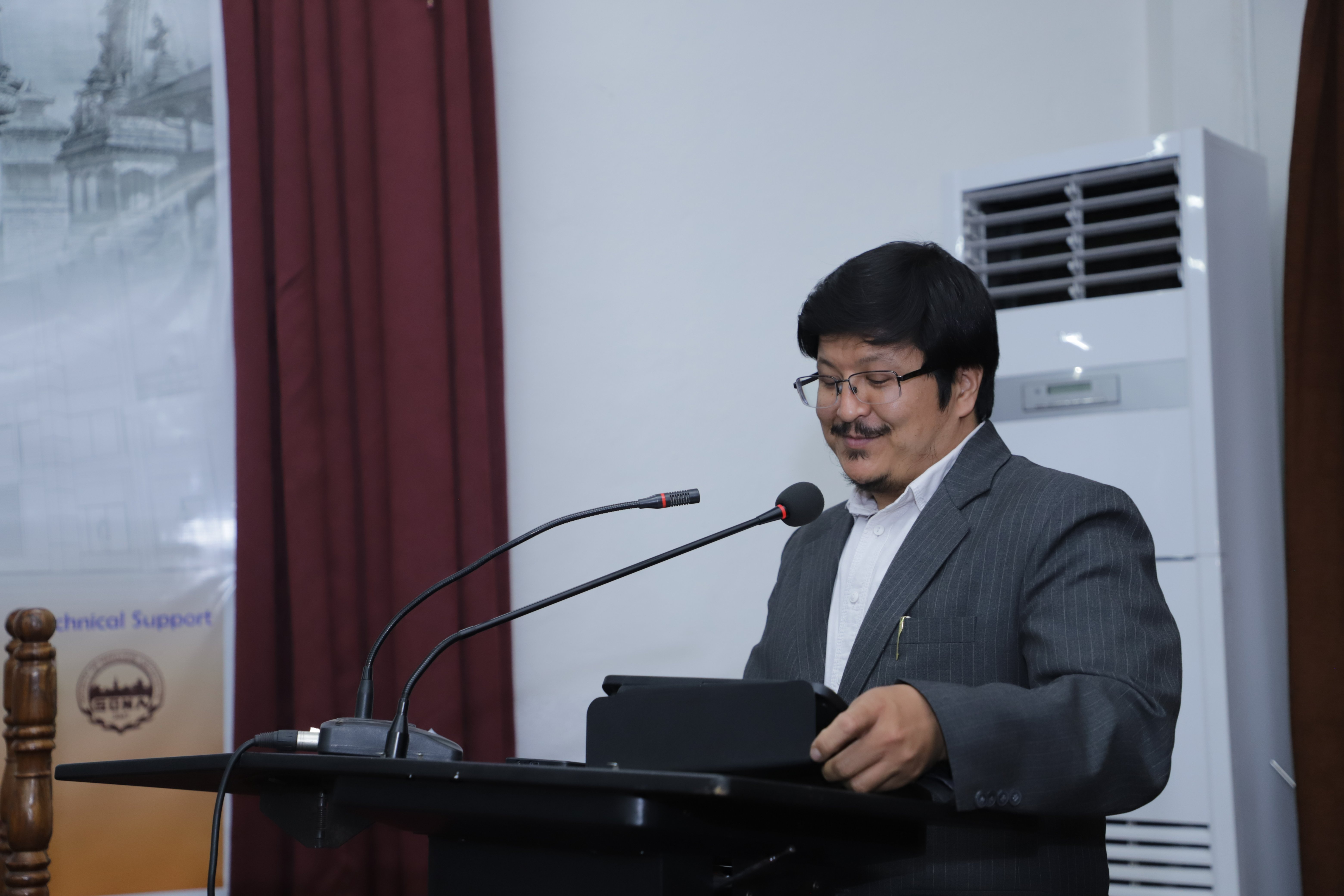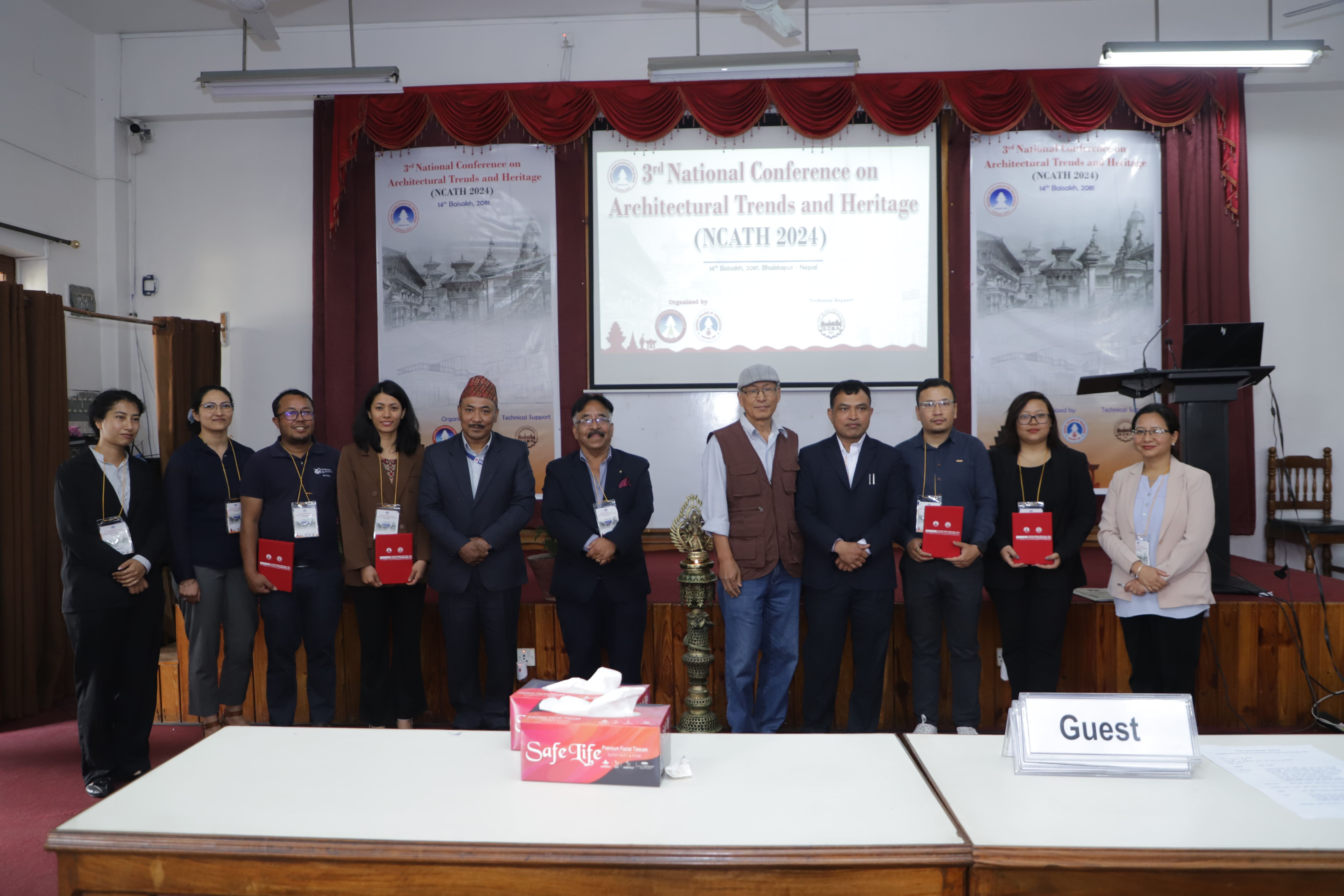-
Detail of News
'Smart City' cannot be a substitute for unplanned urbanization
Narayanman Bijukchhen (Rohit), Chairman of the Nepal Worker and Peasants' Party, inaugurated the 3rd National Conference on Architectural Trends and Heritage (NCATH) on 14th Baishakh, 2081. The event was jointly organized by Khwopa Engineering College and Khwopa College of Engineering, run by Bhaktapur Municipality. In his address, Chief Guest Bijukchhen congratulated the success of the conference. He emphasized that heritage conservation entails preserving the original and ancient skills and styles of Bhaktapur for the benefit of future generations. He highlighted that rebuilding heritage is to utilize traditional knowledge and skills to contribute to the country and society.
.jpg)
.jpg)
Chairman Bijukchhen asserted that labeling a city a 'smart city' cannot remedy unorganized urbanization. He emphasized the importance of academic institutions such as universities, archaeology departments, and Academic Council in safeguarding tangible and intangible heritage.
.jpg)
He further stated, "Besides preserving and promoting historical heritage, the study of antiquity propels humanity towards its future destination from the current standpoint." He highlighted the renowned 'Silk Road' as a historical example that interconnected the world along a single path. He emphasized the importance of bridging antiquity and history with the present while stressing the protection of museums and zoos. He noted that Darwin's theory has disseminated evolutionary thinking throughout society, underscoring the significance of connecting past narratives with contemporary understanding.
The Chairman of the program, Mayor of Bhaktapur Municipality, and Chairman of the College Management Committee, Sunil Prajapati, expressed optimism that the professors, students, architects, engineers, and policymakers would engage in profound discussions on heritage conservation during the conference, leading to significant conclusions. He announced that the fourth international conference on Earthquake Engineering and Post Disaster Reconstruction Planning (ICEEPDRP) would occur in January 2026. He emphasized that it is the collective responsibility and duty of all to safeguard the finest examples of woodwork, metalwork, and art, such as the Golden Gate, 55 Window Palace, Taha Falcha, located in the Bhaktapur Darbar area, as well as landmarks like Nyatapola Temple and Bhairabnath Temple of Taumadhi. He highlighted their role as sources of income and services provided through schools, colleges, and hospitals. Underlining that the Lal Baithak of Bhaktapur has not been reconstructed due to various technical reasons, he emphasized everyone's shared responsibility and duty to preserve this heritage site.
.jpg)
Ar. Rajani Joshi, Deputy Mayor of Bhaktapur Municipality and Vice-Chairman of the College Management Committee, expressed that the initiative "Bhaktapur after a Century" serves as a guiding principle to make Bhaktapur city exemplary. She further informed that the municipality is steadfastly progressing with the commitment that 'Together we can. Together we will.'
.jpg)
She elaborated on Bhaktapur Municipality's role in heritage conservation and highlighted that the municipality is actively involved in several initiatives. This includes implementing a local curriculum that educates about Bhaktapur's rich art and culture across all 92 schools. Additionally, the municipality organizes various skill-based training programs and recognizes cultural mentors for their contributions.
The Chief Administrative Officer of Bhaktapur Municipality, Basant Bhattarai, expressed confidence that the presentations delivered at the conference would significantly aid policy-making bodies. He emphasized the crucial importance of maintaining a distinct identity in heritage protection and stressed the inclusion of discussions regarding the utilization of local resources and skills in the conference agenda.
.jpg)
During the program, Er. Sunil Duwal, Principal of Khwopa College of Engineering, showcased examples of efforts towards heritage conservation. He emphasized the need for awareness regarding donors' involvement in heritage conservation, pointing out that they may have their own vested interests.
.jpg)
Ar. Libas Phaiju delivered a welcoming address, setting the stage for the conference—subsequently, Ar. Eurika Rajbanshi shared her perspectives and insights during the inaugural session.
.jpg)
Thirty research papers were presented across three sessions. Ms. Saubhagya Pradhananga (DG-DOA) delivered a valuable keynote speech. The organizing committee thanked the Society of Nepalese Architects (SONA) for their support and cooperation in hosting the conference and facilitating the insightful panel discussion.
Likewise, in his vote of thanks, Dr. Subeg Man Bijukchhen, vice principal of Khwopa Engineering College, reiterated the importance of conferences like this and expected similar research contributions in the coming ICEEPDRP 2026 for its success. In summarizing the speech, Ar. Archana Bade Shrestha thanked everyone for making the conference successful.

.jpg)
.jpg)
.jpg)
.jpg)
.jpg)
.jpg)
.jpg)
.jpg)
.jpg)
.jpg)

-
React to this News
Departmental Notices
- Final year Project Mid-term Presentation (BEL 2078)
- Minor Project Title Defense (BCT 2079 Batch)
- Major Project Mid-Term Defense (BCT 2078 Batch)
- Schedule for ‘Internal Evaluation Examination for Survey Camp-2082 of 2080 BCE Batch Students'
- Schedule for ‘Internal Evaluation Examination for Survey Camp-2082 of 2079 BCE Batch Students'
- Geology Field Visit Notice
- Registration for Civil Engineering MCQ Competition - 2082
- Registration for Python (Programming Language) Training
- Major Project Proposal Defense (BCT 2078 Batch)
Any Problem? Contact Us or Visit College's Help Desk.
Your are encouraged to visit college and feel the environment.
